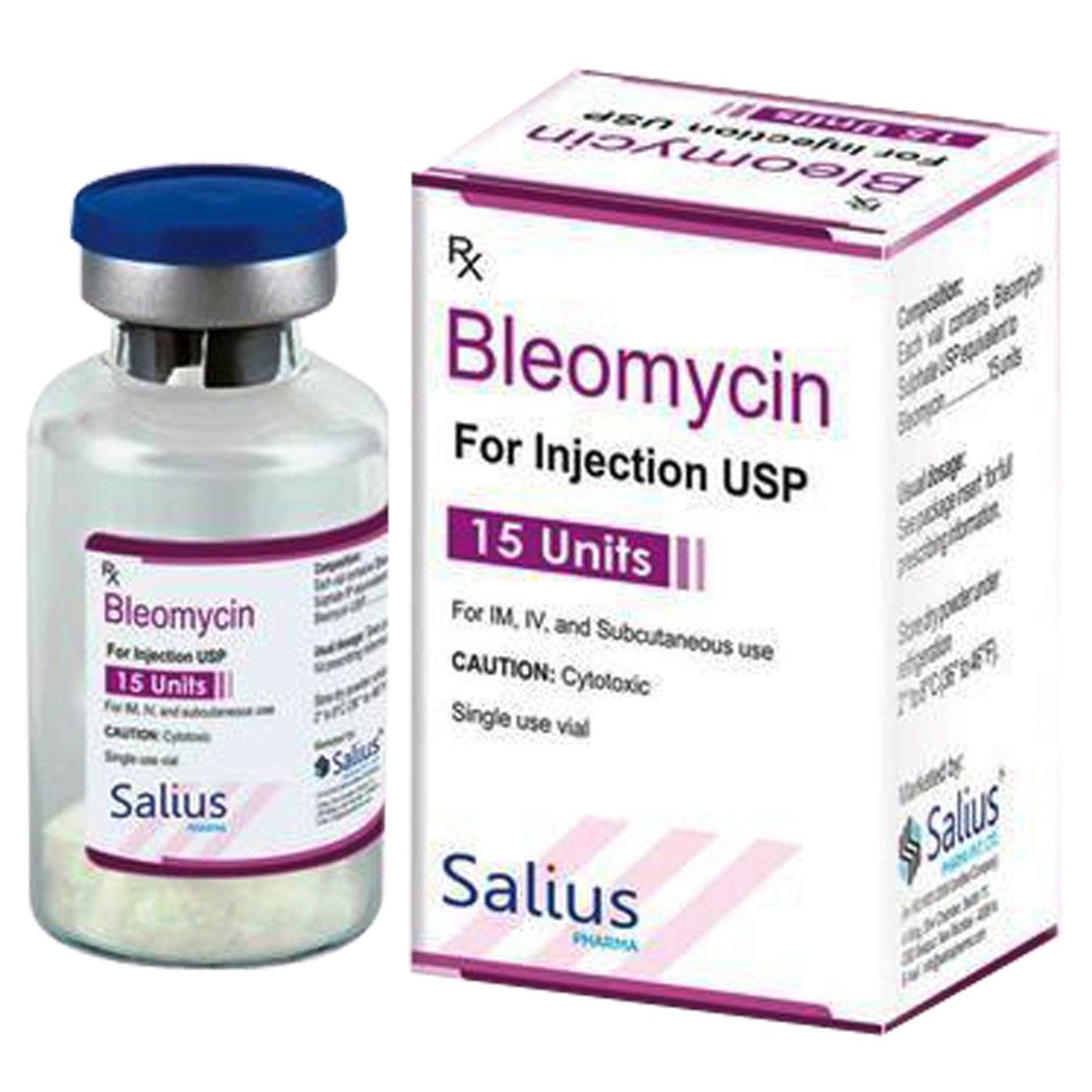- Home
- Metbleo Injection
Metbleo Injection Substitute
Metbleo Injection Substitute
Medicine Composition:
BLEOMYCIN-15IUAll Substitutes & Brand Comparisons
RX
Out of StockBleoz 15IU Injection
₹640
(₹115.2/ 1ml)
80% CHEAPERRX
Out of StockBleomycin Sulphate Injection 1's
Dabur India Ltd
₹591.42
(₹520.45 per unit)
11% CHEAPERRX
Out of StockBleoget 15IU Injection
GLS Pharma Ltd
₹591.42
(₹532.28 per unit)
9% CHEAPERRX
Out of StockBleomycin Injection
Dabur India Ltd
₹646.9
(₹569.27/ 1ml)
2% CHEAPERRX
Out of StockTumocin 15 Units Injection 1 ml
Neon Laboratories Ltd
₹634.3
(₹570.87 per unit)
2% CHEAPERRX
Out of StockBleowel 15IU Injection
Getwell Oncology Pvt Ltd
₹637
(₹573.3 per unit)
2% CHEAPERRX
Bleocel Injection 1's
Celon Laboratories Pvt Ltd
₹723.5
(₹651.2 per unit)
11% COSTLIER

When Should You Consider Switching from Metbleo Injection?
Patients may explore substitutes in the following scenarios:
- High monthly cost of Metbleo Injection
- Non-availability in local pharmacies
- Generic recommendation by a doctor
- Side effects or better tolerability with alternatives
What to Know Before Switching
Before you switch from Metbleo Injection to another medicine, here are some important points to keep in mind:
Same salt, different brands:
Most substitutes contain the same active ingredient - BLEOMYCIN-15IU, but the fillers, coating, or manufacturing quality may vary slightly.
Consult your doctor first:
Even if the salt is the same, your doctor can confirm if the substitute is right for your condition, dosage, and health history.
Watch out for allergies or reactions:
Some people may react differently to certain brands due to inactive ingredients. If you notice any side effects, inform your doctor immediately.
Price ≠ effectiveness:
A lower-priced substitute doesn't mean it's less effective. Many generic medicines work just as well as branded ones.
Check the dosage form and strength:
Always match the substitute’s strength (e.g., 5mg, 10mg) and form (tablet, capsule, syrup) with what your doctor prescribed.
Uses
Medicinal Benefits
Metbleo Injection belongs to the group of anti-cancer medicines called antimetabolite. It treats certain types of cancer in the head and neck, cervix and external genitalia, lymph node cancer, testicular cancer, and fluid accumulation in the lungs (resulting from cancer). Metbleo Injection contains bleomycin that works by interfering with the growth of genetic material (DNA and RNA) of the cancer cells. This prevents the cancer cells from multiplying and growing and eventually kills them.
FAQs
The substitutes of Metbleo Injection contain the same active salt(s) - BLEOMYCIN-15IU. However, they may differ in price, manufacturing quality, and inactive ingredients. Speak to your doctor to find a suitable option.
Switching to a generic substitute medicine in the place of Metbleo Injection is often possible if it has the same salt, strength, and dosage form. But always check with your doctor before making any changes to your medication.
Generics versions of Metbleo Injection are typically more affordable because they don’t include the original brand's research, development, and marketing costs. They contain the same active ingredient and are approved for safety and effectiveness.
Most people don’t notice any difference. However, some may react to different fillers or coatings. If you notice any unusual symptoms after switching, consult your doctor.
Make sure the new medicine has the same active salt, strength, dosage form. Always confirm the change with your doctor or pharmacist.
Substitutes of Metbleo Injection meet the same safety and efficacy standards as Metbleo Injection, but small differences in absorption or formulation can exist. A doctor can help you choose the right one for your needs.
Yes. Substitutes of Metbleo Injection may vary in color, size, or shape due to differences in manufacturing and branding, but this does not affect how they work.
Yes, it’s generally safe to switch between multiple substitutes of Metbleo Injection if they have the same salt and strength. However, always inform your doctor so they can monitor how your body responds.
Yes, many people safely use substitutes of Metbleo Injection for long-term treatment. Just ensure it’s done under medical supervision.
If your symptoms stay under control or lab results remain stable, the substitute for Metbleo Injection is likely working well. Regular follow-ups with your doctor are important.
Absolutely. Even with the same salt, small differences can affect how your body responds when switching from Metbleo Injection to its substitute. Always consult your doctor before switching.



